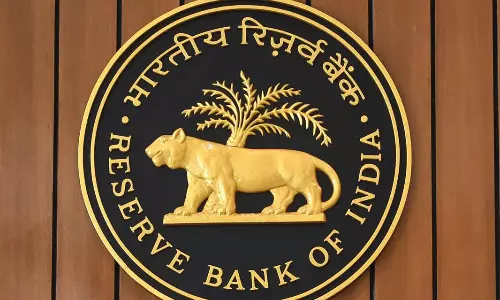
Jat reservation imbroglio in Haryana
text_fieldsThe Jats have been protesting in Haryana demanding reservation in government jobs and educational institutions unleashing violence across the state and disrupting the road and rail traffic.
Jats who make up 29 per cent of Haryana’s population are demanding to be declared OBC in order to secure reservation. Traditionally farmers, they are not considered a backward class and are economically and politically well off. About 12 persons were killed in the clashes and subsequent firing. The agitators broke into the residence of Minister Captain Abhimanyu setting it on fire and vandalizing the properties. They also damaged the railway tracks, malls, police and civilian vehicles and dug up highways despite a heavy deployment of army and paramilitary personnel. Thousands of train services through Haryana and destined to the neighbouring states remained interrupted indefinitely causing a loss of hundred crore reportedly. The central police forces were deployed with orders of shoot at sight at the hostile protestors. Haryana Chief Minister Manohar Lal Khattar has now agreed to the demands of presenting the reservation Bill for the Jats in the assembly anticipating an end to the violence and agitation in the state. The Jats began their agitation demanding a reservation like other backward classes in 1991 after V P Singh, the then prime minister approved the Mandal Commission recommendations. The National Commission for Backward Classes that held a survey in 1997 had rejected the recommendations of including the Jats of Haryana, Uttar Pradesh and Madhya Pradesh, in the central OBC list annoying the community.
The governments in power had tried to appease the Jats, who went into strike, for political gains all of which has led to the current volatile scenario. A survey was conducted in 2012 by the Commission in six states including Haryana and Uttar Pradesh to review the economic and social status of the Jats. The community which was traditionally considered as ‘backward’ was found to be economically and socially well off. In February 26, 2014 the Commission submitted a report to the government that the criteria for the inclusion in the OBC list weren’t applicable to the Jats. But in the next March, the Jats in the states of Bihar, Gujarat, Haryana, Himachal Pradesh, Delhi, Uttar Pradesh and Uttarakhand as well as in two districts in Rajastan were included in the OBC category by the UPA government before stepping down from power. But the Supreme Court rejected the Centre’s decision backing the findings of the Commission. The apex court made it clear that that caste alone could not be the reason to approve reservation for a certain community but social backwardness should also be the prime concern. But the Jats insist not just on caste reservation but economic reservation as well.
The former Congress government under Bhupinder Singh Hooda had granted a 10 per cent reservation under the Specially Backward Class category for the Jats, Jat Sikhs, Rod, Tyagi and Bishnoi castes. Additionally, a 10 per cent reservation in the general category was also granted to those in financial crisis with a total of 67 per cent reservation surpassing the Supreme Court criteria of up to 50 per cent. The Rajputs, Punjabis, Agarwals and Brahmins also became included under the quota inviting opposition from the backward classes. The Jats who constitute about 27 per cent of Haryana’s population determines the future of 30 seats in the 90-member assembly. The BJP came to power in 2014 utilising this aspect which led to fissures within the party. The Jats refused to give in to the Congress that promised increasing the 10 per cent reservation. BJP leaders like Raj Kumar Saini, the Kurukshetra MP strongly opposes the inclusion of Jats maintaining that the community had adequate representation in government services and educational institutions under the OBC category. Warnings about deploying volunteers from 38 backward classes to counter the agitators were also issued. The political parties including the BJP are presently reaping the ‘results’ of their actions of caste appeasement in Haryana. The reservation imbroglio in the state is an instance of the huge price paid due to the caste appeasement aimed at temporary political gains. Not just the agitators but also the influential politicians who raise them should be reined down to put an end to the present crisis in the state.























